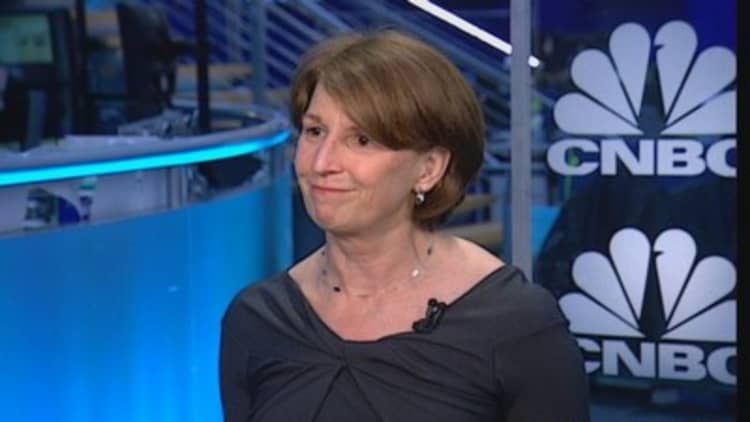
Get your happy on. Generation X may be more prepared for retirement than you've been hearing.
Then again, maybe not.
Late in 2013, Wells Fargo released its annual Middle Class Retirement Study. Included in the findings was the news that "middle-class Americans in their 30s seem to have the most realistic overall outlook for retirement."
The study found that these younger middle-class members of Gen X are socking away a larger share of their income for retirement than are people in their 20s or 40s. Thirty-somethings are more likely to have a retirement plan and are less wary of the gyrations of the stock market.
"They've done the best job planning, and they still have the luxury of time," said Joe Ready, head of the 401(k) division at Wells Fargo Institutional Retirement. "They have 25 to 35 years before they retire. Their savings rate is not where it needs to be, but it's still pretty good, and they still have more confidence in the market."
The picture is quite different for the 40-something cohort of Gen X, however. Ready pointed out that workers in their 40s and 50s started saving for retirement as defined benefit plans were phased out and 401(k) accounts were relatively new. They lost out on pensions but weren't told to view 401(k) savings as essential.
"I think we've got a whole group of people—call them the middle retirement generation—that is caught, and I would say it's through no fault of their own," he said. "Our national policy changed around how they were going to pay for retirement." These people may also be paying for aging parents and contending with college tuitions, he added.
(Read more: )
A more recent study, from the Insured Retirement Institute, looked at Generation X as a single group and found their retirement readiness sorely lacking.
According to that study, Gen X's median retirement savings has dropped in the last two years and now stands at less than $60,000. It also found that 42 percent have less than $50,000 saved, compared with 30 percent two years ago.
"This five-year recession has taken a toll on the Gen Xers overall," said Cathy Weatherford, the institute's president and CEO. Many bought homes at the top of the market and are struggling with hefty mortgages and significant student loans, she added.
(Read more: Recession will haunt Gen X into retirement)
On top of the recession, there is Gen Xers' behavior.
"There's been tremendous leakage in their retirement savings," Weatherford said. "Fourteen percent of Gen Xers have prematurely withdrawn money from their retirement accounts for nonretirement purposes in the last year." They did the same thing two years ago, she said, when the institute did its last survey.
(Read more: Spanked on retirement, Gen X still doesn't get it)
Data from Fidelity Investments' 2013 Retirement Savings Assessment reveals similar contradictions.
Some 84 percent of Gen X respondents report having workplace retirement savings accounts, with their average reported savings rate 7 percent of income. But 20 percent are saving less than 2 percent of their income, and 30 percent of Gen Xers who responded have 20 percent or less of their reported retirement savings in equities.
What gives?
Part of the issue is what is being measured. It's true that many Gen Xers seem to be saving at a respectable rate, and some have a good handle on the value of investing in stocks. But it's also true that the total amount they have put away is inadequate, and a significant portion seems to be underinvested in equities.
Another issue is timing, and how that factors in. Older members of Gen X have 15 to 25 years until retirement, so they have some time to improve their situation. Younger Gen Xers have even longer. So though their savings may be weak now, a decent chance remains that they can correct matters. Millennials have even more time to get things right. Again, both can be true.
"I think our challenge from a middle-class standpoint is this middle group caught in the change," said Ready at Wells Fargo. "But the younger group, whether we call them Gen X or millennials, still have the power of time, and I think they get it. They're going to own their own quality of life in retirement."
—By CNBC's Kelley Holland. Follow her on Twitter @KKelleyHolland.


